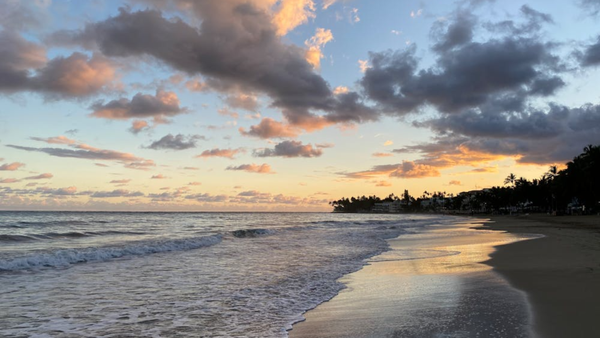MIAMI — A previously convicted Haitian drug trafficker who voluntarily flew to Miami to face new charges in the federal assassination case of Haiti president’s agreed Wednesday to be detained as he appears to be cooperating with U.S. investigators as they zero in on a network of foreign and South Florida suspects.
Rodolphe Jaar, a former Drug Enforcement Administration informant, is accused of playing a central role in providing housing, weapons and other support to a group of Colombian commandos suspected of murdering Jovenel Moïse in his home outside Port-au-Prince in July.
Jaar’s assistant public defender Joaquin Padilla told a magistrate judge Wednesday that for now he would not contest his detention before trial and that he also would not challenge a criminal complaint filed last week before his arrest. Magistrate Judge Lisette Reid ordered Jaar’s detention before trial and scheduled his next court appearance for late February, when it will become clearer whether he will continue to negotiate a plea deal or opt to face a grand jury indictment.
Jaar, 49, who has both Haitian and Chilean citizenship, is charged with providing material support resulting in the death of Haiti’s president and conspiring to kill or kidnap him outside the United States. He faces up to life in prison.
According to law enforcement sources, Jaar has critical information that could help agents with the FBI and Homeland Security Investigations build a stronger conspiracy case against Haitian, Colombian and South Florida suspects in the assassination of Haiti’s president.
Jaar, who agreed to be flown to Miami on Jan. 19 after his recent arrest in the Dominican Republic, is accused of meeting with a Haitian-American co-conspirator before the deadly plot was carried out and of helping him and others allegedly tied to Moïse’s assassination hide in its aftermath, according to an FBI criminal complaint and affidavit.
During an interview in December while in hiding in Port-au-Prince and weeks before his arrest, Jaar admitted to U.S. investigators that “he provided firearms and ammunition to the Colombians to support the assassination operation,” the FBI affidavit says. “He stated that the operation changed from an arrest ... (to remove Moïse from office) to an assassination operation after the initial plan to ‘capture’ the Haitian president at the (Port-au-Prince) airport and take him away by plane did not go forward.”
Jaar is the second suspect to be arrested in the U.S. probe of Moïse’s assassination. In early January, U.S. authorities arrested a former Colombian sergeant, Mario Antonio Palacios Palacios, who had fled to Jamaica after months of hiding in Haiti and was deported back to Colombia by a Jamaican judge. During a layover in Panama, he was detained and told there was an arrest warrant for him in the United States. He agreed to fly to Miami to face conspiracy charges.
U.S. investigators also have their sights on a third suspect, a former Haitian senator, John Joël Joseph, who is in custody in Jamaica, where he is being held on an immigration violation. Joseph, whose passport lists his name as Joseph Joel John, was arrested at a house in rural St. Elizabeth Parish, along with his wife and two children, after entering the English-speaking Caribbean nation by boat — also after spending months in hiding.
Although 44 Colombians, Haitians and Haitian Americans were arrested as part of Haiti’s investigation of the president’s July 7, 2021, murder, that country’s probe has run into roadblocks, including the recent firing of the investigative judge who had been overseeing the Haiti National Police case.
Meanwhile, more than six months after Moïse’s brazen killing, the U.S. probe is gaining significant momentum as both the FBI and HSI continue to focus on foreign and South Florida suspects, including a Miami-area security firm, its owner and others who are suspected of recruiting about 20 ex-Colombian soldiers and providing training, equipment and other support to them before the president’s assassination.
U.S. investigators have stitched together their own case by using the investigative work of Haiti’s judicial police, who produced a 124-page summary of their exhaustive investigation. The report, obtained by the Miami Herald, describes meetings between the various suspects, including Jaar, and cellphone logs. During their parallel investigation U.S. federal agents also obtained text messages.
According to the FBI affidavit for Jaar’s arrest, the Haitian businessman not only provided weapons to the Colombian commandos to carry out the mission targeting Moïse, but also met with an unnamed collaborator, identified as “co-conspirator #1,” one of three Haitian Americans now jailed in Haiti. The Herald has learned his name is James Solages, who says he was a translator but was at the president’s home when Moïse was killed and shouted that the assault was a “DEA operation.”
According to witness statements, Jaar collaborated with Solages and others in a plot to have Moïse arrested in mid-June of last year at the Port-au-Prince airport upon his return from an official visit to Turkey.
But after that initial plot failed, “co-conspirator #1” (Solages) traveled from Haiti to Miami on June 28 and “provided other individuals” with a request for assistance in targeting Haiti’s president, the affidavit says. The Herald has learned that Solages shared that information with the Miami-area security firm CTU, owned by Antonio Intriago, whose lawyers say he had no knowledge of an assassination plan.
“According to interviews of several co-conspirators in Haitian custody, by this point certain co-conspirators had knowledge of, or at least believed, that the plan was to assassinate rather than kidnap President Moïse,” the affidavit says. On July 1, “co-conspirator #1 (Solages) flew from Florida to Haiti to participate in the operation.”
On July 7, some of the Colombian commandos, Haiti police working security and others stormed the president’s hillside compound in Pétionville and entered his home with the “intent and purpose of killing” Moïse, the affidavit says. Later that day, Jaar spoke with “co-conspirator #1” and others to assist (Solages) and the Colombians, “who were hiding and feared that they would be captured and/or killed by Haitian authorities.”
———







